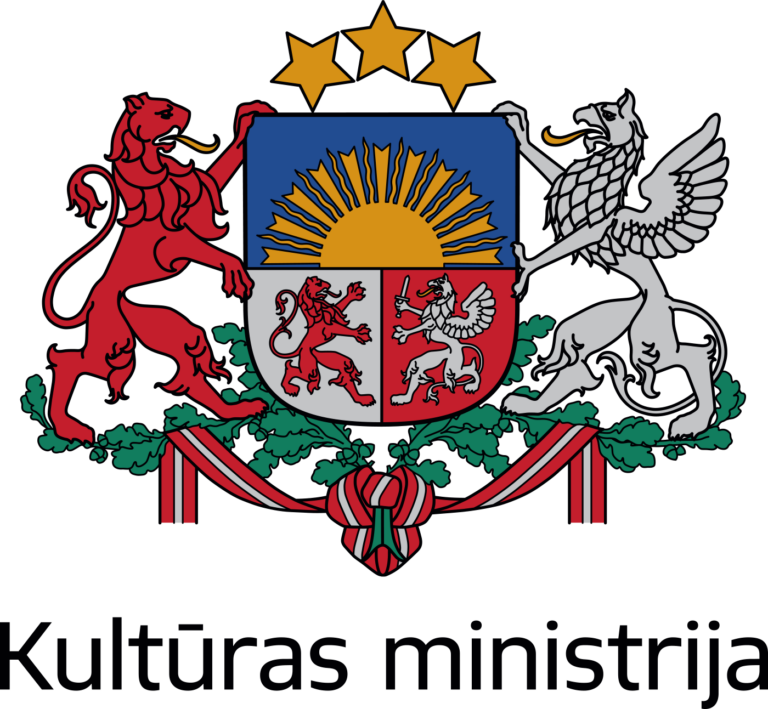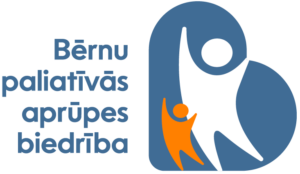Spiritual care must not be forgotten in times of crisis
When serious health issues arise, the first thing people and their relatives worry about is how to heal physically. First aid is sought from medical professionals, trusting the doctors and letting the treatment process run its course. But, in addition to physical health, there is also the spiritual aspect, which often takes a back seat during such crises. The Children’s Palliative Care Service, a unit of the Children’s Clinical University Hospital, has been tending to this issue for almost 20 years – chaplain Aina Briede and her colleagues help parents and seriously ill children who have been placed under the care of the Service to maintain their spiritual health.
Children’s palliative care is about helping seriously ill children to make the most of their physical abilities, while making sure that they feel as comfortable as possible. It is also important to listen to the child’s wishes and make sure they are surrounded by the people closest and dearest to them. Chaplain Aina Briede’s work begins with the parents and only then, after receiving permission, may she or one of the other eight chaplains of the Children’s Palliative Care Service start working with the sick child. The chaplain reveals more about her work in an interview with the portal “Cālis”.
The chaplain addresses the person first
In very simple words, as revealed by chaplain Aina Briede during the interview, a chaplain is someone who provides spiritual care to people in crisis. Moreover, spiritual care is available at the hospital not only to the patient and his or her parents, but also to other immediate family members and caregivers. Often, the chaplain will also consult professionals – doctors and nurses – to help them understand the patient’s emotional and spiritual needs, and not just the physical needs. “It can happen that the professionals don’t even realise that we have counselled them and given spiritual support. The aim of a spiritual care conversation is to improve the microclimate for the patient during a crisis when the person is anxious – this is the most important thing,” says the chaplain.
Aina Briede became a chaplain at the Children’s Palliative Care Service in 1999 – a year after it was founded. Laughing, she says she even remembers the exact date, 6th of December. So a round anniversary is expected this year. When asked what has changed most in these almost 20 years, the chaplain immediately answers that, in general, a lot has changed. She started working alone, and some years later she was joined by another chaplain. The Children’s Palliative Care Service has a close collaboration with the Children’s Palliative Care Society, which now has a team of eight chaplains. She is most pleased that the chaplains are well educated and continue to educate each other as a team, which is a good achievement too.
Each day at the Children’s Palliative Care Service starts with an interdisciplinary team meeting, bringing together doctors, nurses, chaplains and other professionals to discuss each client’s needs, patient care plans for the day, and to systematise the work. All the professionals work hand in hand to ensure that every child receives what they need, considering not only the child’s emotional, mental, physical and social needs, but also those of their parents. Medical services are provided by a doctor and a nurse. Psychological, social and spiritual support are provided by a psychologist, a social worker and a chaplain. Support in grieving, which is an essential part of palliative care, is provided by a chaplain, a psychologist and a social worker.
When Aina started working 20 years ago, even those closest to her didn’t really know what children’s palliative care was. Information about what the Children’s Palliative Care Society and Service do is now much more accessible. “What has changed is that there are more professionals now who have been exposed to what spiritual care does and what the outcome is. The medical staff, psychologists, interdisciplinary team members are happy to include and use spiritual care with a chaplain as a service provider. This is extremely important.”
Moreover, it is a misconception that a parent or the patient himself will seek out help from the chaplain. According to Aina, people are rarely aware of the specific issues they want to address from a spiritual perspective. “A chaplain is a professional who will go out and seek opportunities to support the person. One could say that a chaplain is someone who enters step by step into the world of that person’s pain, into the zone of their suffering, and tells them: “Here I am and I can help you.””
From support groups to results
Considering that palliative care applies to children who are chronically ill and who cannot be cured, it is necessary to care not only of the health of the child and his or her parents, but also of grieving clients. For this reason, chaplains lead parent support groups in close collaboration with psychologists. These weekly group meetings undeniably produce good results. Chaplain Aina’s colleagues even say that they can see the evidence when they meet the clients, so the work pays off. This is the greatest gift a chaplain could receive.
When asked if people are willing to receive spiritual support from a chaplain, the chaplain is very direct: “I don’t think I’ve ever heard this in my life: “Oh, good, the chaplain has come to see me!” However, it is common that the person who needs support doesn’t really know what it means. Talking about spiritual care, people are more familiar with it. But spiritual care is more or less associated with religious care. If we start the conversation by saying “I see this and that. I’m ready to help you, let’s work”, then the person feels it and understands what it means, and as a result communication is established and the person is really satisfied.”
Chaplain is also proud and pleased to have travelled to various children’s palliative care conferences in other countries, which bring together a wide range of professionals. “We are proud to be the only provider of spiritual care and chaplaincy services in this context. For example, in countries dominated by the Orthodox faith, palliative care is linked to religious care rather than spiritual care. With our chaplains, we are leaders among other countries in children’s palliative care. Conference participants from Eastern European countries were very happy to take part in the session we ran on spiritual care, which was very well attended and had good results,” says Aina. The Latvian Children’s Palliative Care Service and the Children’s Palliative Care Society can be proud of the team created, as all the needs of a person are met from a holistic perspective. In other parts of Eastern Europe spiritual care is lacking.
During the conversation, the Chaplain emphasised that spiritual care is not related to a religion: “A person can receive spiritual care without belonging to any religious denomination, as the chaplain provides a spiritual perspective to emphasise that you are a spiritual being. Your beliefs and who or what you worship are a personal choice. We as chaplains, that is what we have to do – support and show the spiritual dimension. I am a Christian, but the people I work with could be from any denomination or no denomination at all. The person will receive spiritual support because .”
Working with children in the form of play
Work with parents and relatives takes place in the form of conversations, both individually and in support groups. For children, however, the approach is different. As with a psychologist, a chaplain can only work with a child if the parents or guardians approve. As parents become more familiar with the professionals, they feel a sense of security and trust that opens the door for the chaplain to start working with the young patient or his/her siblings.
In conversations with adults, existential issues are discussed, and often the person will ask questions or talk about their feelings. Children open up through play. Aina mentions that chaplains will use a sandbox or a flannel board to create a story using figures and dolls. They may also use various images to describe emotions. “We have a boy who, when he sees our chaplain, immediately runs to her. When we tell him that we are going to visit somebody, he immediately gives his hand and is very happy and open. Cooperation is built through play, and play reveals many things – the emotional side, abilities or inability. At the same time, there are children who can talk, and they are not easy to deal with.”
The work is scheduled, if possible, as the chaplain has their own responsibilities, documentation and clients. This includes visits to the Children’s Palliative Care Centre and home visits to children and their parents. In acute situations, chaplains can quickly step in and get involved right there at the hospital. “Then, of course, there are cases that require deeper solutions, where we agree with the parents whether it will be five, ten or fifteen consultations on a regular, weekly basis. We may also schedule parent support groups, which are more or less therapeutic, comprising 10 to 15 consecutive counselling sessions in the form of classes. That is our daily routine. There are many other things as well, such as documentation related to spiritual support, results, scheduled visits, reporting forms,” the chaplain explains.
Aina is very pleased that the Ministry of Welfare stepped in last year to pay for the psychosocial rehabilitation provided by the Children’s Palliative Care Service. “We are currently in a privileged position where the state pays the chaplain’s salary. I am very grateful to the Ministry of Welfare for our joint cooperation and I am very happy about it.
The number of clients has been growing in recent years. People are in need of professionals or chaplains providing spiritual care. The Children’s Palliative Care Society has established teams in Riga, Riga region and Liepaja. On the day of the interview, Aina is at the Palliative Care Service, but already the next day she leaves for a trip to Daugavpils. Chaplains also travel to other regions. Recent trips include Venstpils, Alūksne, Saulkrasti, Rēzekne – Aina and her colleagues are mobile so that chaplain services can be provided to as many parents and children in children’s palliative care as possible. A future goal is to establish a team that will be available in Vidzeme and Latgale.





